It could be called fatigue. Mental exhaustion. The downward tug of existing at all. Without getting too lost in the melancholic, I will simply say that the past week was a tough one. Every day in Japan is a special experience, but a simultaneously tiring one that asks a lot from a student of language; attention is raised on all fronts, to not only meet challeges of communication but also lifestyle. Couple the “always on” mindset with daily, formal classes and it is easy to become mired in a state of mind that is unproductive, not only to learn but to treat relationships with the focus they deserve.
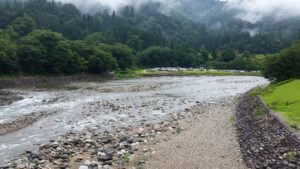
Thus, I was challenged last week–personally challenged–and while I have come out on the other end with a level of positivity for the final week ahead of me, it was not without some contemplation. And a long weekend.
Necessarily, my language competence took a hit. Reading comprehension was consistent during my slump, but as I found myself talking less, when I got involved in conversations, I was less than eloquent. I like to think of the language-speaking mind as a machine, with many shifting parts and connecting wires. When one talks less, the parts of the machine are still present, still functional, but they have been powered off. They are cool to the touch and and need quite a bit of work to get back to their peak output.
So several times in the past week, I was not operating at “peak output.” My linguistic mind was cool to the touch. As I took notice of this challenge, I also noticed how easily crippling it could become–the longer the machine rests, the more it will need to be functional again.
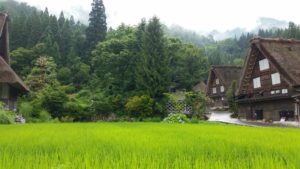
No matter how intimidating, conversations are essential to sustain speaking ability. It sounds obvious, and it is, but it is an easily forgettable fact when you feel burdened. Several times this week, I was intimidated, and honestly failed to meet my challenges. But, as the trite saying goes, one may lose the battle but win the war. I am going to stop mixing metaphors now.
As I mentioned, this weekend was a long one, thanks to Ocean Day (海の日、うみのひ, umee no hii). I used the time to focus and reflect on where I had been–mentally–and what I could do from there. And I had just the experience to facilitate this reflection.
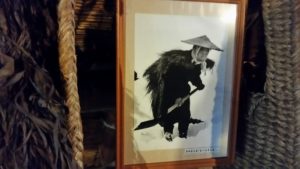
On Sunday, I went with a friend and this friend’s hostfather to a place called Shirayama in Toyama Prefecture. Shirayama is a mountain village that has been preserved in a very traditional state. For example, all the houses bear straw roofs that are actually cycled to maintain the tradition. Various agricultural tools and methods, silkworm production, and rice fields (tanbo) can be seen. The village is fun (though, and I say this ironically, filled with tourists).
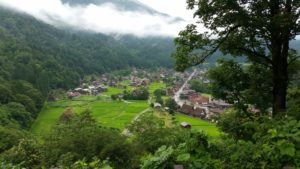
Surrounded by the immensity of Toyama’s mountains, so shrouded by clouds that you believe they could stretch upward forever, spending time examining a slice of Japanese history, and speaking exclusively Japanese while doing so, was the exact kind of recentering I needed.
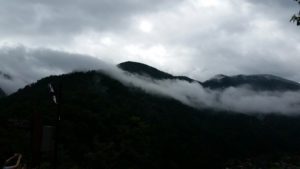
I am going forward now not only with more confidence for the final week, but with the reminder that learning a language is going to be exhaustive, and sometimes you might wonder if you can truly improve. The answer to such inner strife is to live. Language is so many things, composed of a people’s lifestyles and customs and thought. The will to expose yourself, and to be involved with the people around you, is both simple and essential.
Joshua Kuiper
カイパーヨシュア
